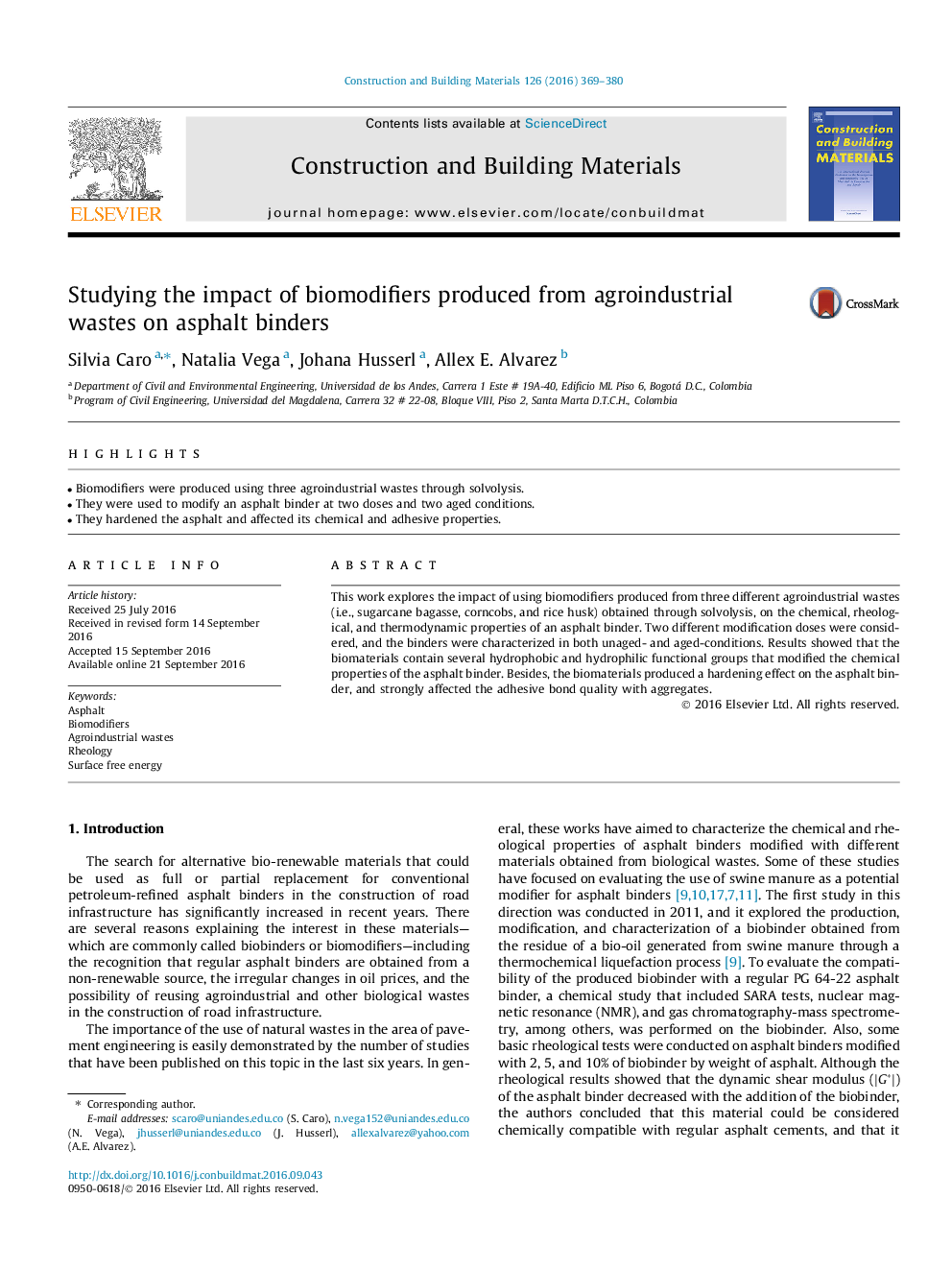| Article ID | Journal | Published Year | Pages | File Type |
|---|---|---|---|---|
| 6480883 | Construction and Building Materials | 2016 | 12 Pages |
â¢Biomodifiers were produced using three agroindustrial wastes through solvolysis.â¢They were used to modify an asphalt binder at two doses and two aged conditions.â¢They hardened the asphalt and affected its chemical and adhesive properties.
This work explores the impact of using biomodifiers produced from three different agroindustrial wastes (i.e., sugarcane bagasse, corncobs, and rice husk) obtained through solvolysis, on the chemical, rheological, and thermodynamic properties of an asphalt binder. Two different modification doses were considered, and the binders were characterized in both unaged- and aged-conditions. Results showed that the biomaterials contain several hydrophobic and hydrophilic functional groups that modified the chemical properties of the asphalt binder. Besides, the biomaterials produced a hardening effect on the asphalt binder, and strongly affected the adhesive bond quality with aggregates.
